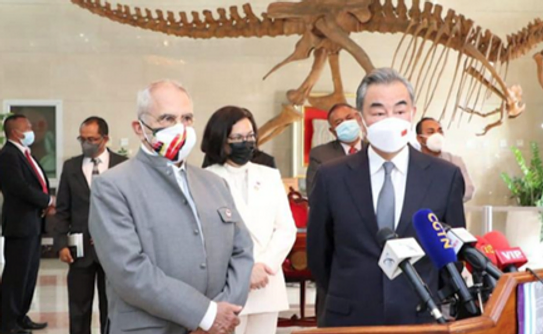Commentary by David Robie (Asia Pacific report)
Timor-Leste, the youngest independent nation and the most fledgling press in the Asia-Pacific, has finally shown how it’s done — with a big lesson for Pacific island neighbours.
Tackle the Chinese media gatekeepers and creeping authoritarianism threatening journalism in the region at the top.
In Dili on the final day of Chinese Foreign Minister Wang Yi’s grand Pacific tour to score more than 50 agreements and deals — although falling short of winning its Pacific region-wide security pact for the moment — newly elected (for the second time) President José Ramos-Horta won a major concession.
· READ MORE: Outcry as China stops Pacific journalists questioning Wang Yi
· Chinese foreign minister’s visit to the Solomon Islands has been shrouded in secrecy and press restrictions
· Timor-Leste: Deals signed with China at start of visit by Chinese minister
· China calls for a ‘reset’ in relations with Australia
· Other China in Pacific media freedom reports
Enough of this paranoid secrecy and contemptuous attitude towards the local – and international – media in democratic nations of the region.
Under pressure from the democrat Ramos-Horta, a longstanding friend of a free media, Wang’s entourage caved in and allowed more questions like a real media conference.
Lusa newsagency correspondent in Dili Antonió Sampaio summed up the achievement in the face of the Pacific-wide secrecy alarm in a Facebook post: “After the controversy, the Chinese minister gave in and agreed to speak with journalists. A small victory for the media in Timor-Leste!”
Small victory, big tick A small victory maybe. But it got a big tick from Timor-Leste Journalists Association president Zevonia Vieira and her colleagues. He thanked President Ramos-Horta for his role in ending the ban on local media and protecting the country’s freedom of information.
Media consultant Bob Howarth, a former PNG Post-Courier publisher and longtime adviser to the Timorese media, hailed the pushback against Chinese secrecy, saying the Chinese minister answering three questions — elsewhere in the region only one was allowed and that had to be by an approved Chinese journalist — as a “press freedom breakthrough”.
On the eve of Wang’s visit, Timor-Leste’s Press Council had denounced the restrictions being imposed on journalists before Horta’s intervention.
“In a democratic state like East Timor not being able to have questions is unacceptable,” said president Virgilio Guterres. “There may be limits for extraordinary situations where there can be no coverage, but saying explicitly that there can be no questions is against the principles of press freedom.”
The pre-tour Chinese restrictions on the Timorese media … before President Jose Ramos-Horta’s intervention. Image: Antonio Sampaio/FB




